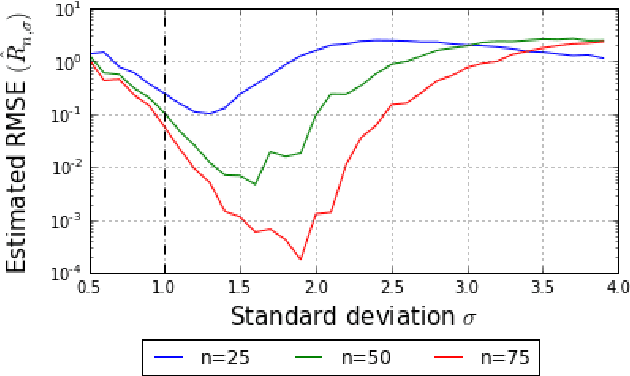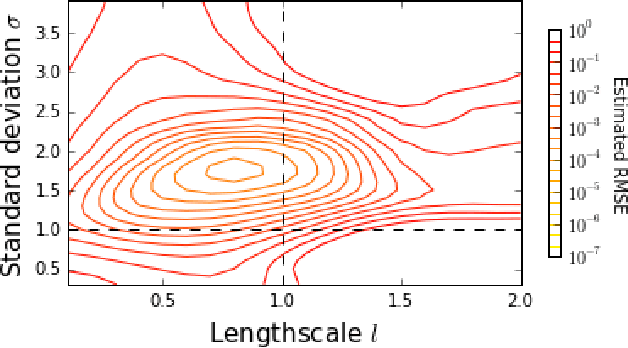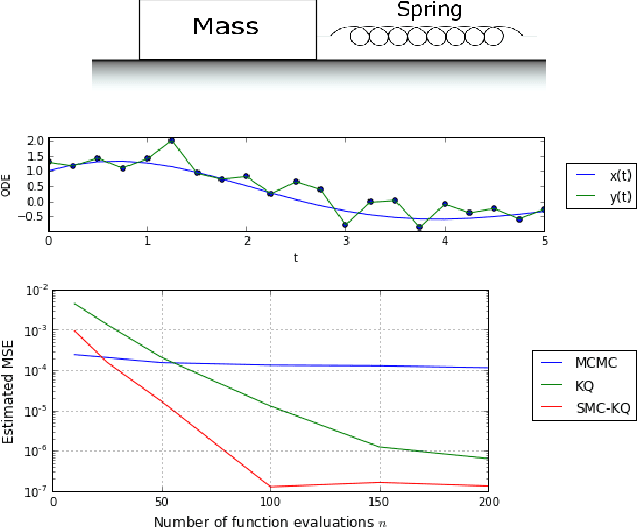On the Sampling Problem for Kernel Quadrature
Paper and Code
Jun 11, 2017



The standard Kernel Quadrature method for numerical integration with random point sets (also called Bayesian Monte Carlo) is known to converge in root mean square error at a rate determined by the ratio $s/d$, where $s$ and $d$ encode the smoothness and dimension of the integrand. However, an empirical investigation reveals that the rate constant $C$ is highly sensitive to the distribution of the random points. In contrast to standard Monte Carlo integration, for which optimal importance sampling is well-understood, the sampling distribution that minimises $C$ for Kernel Quadrature does not admit a closed form. This paper argues that the practical choice of sampling distribution is an important open problem. One solution is considered; a novel automatic approach based on adaptive tempering and sequential Monte Carlo. Empirical results demonstrate a dramatic reduction in integration error of up to 4 orders of magnitude can be achieved with the proposed method.
 Add to Chrome
Add to Chrome Add to Firefox
Add to Firefox Add to Edge
Add to Edge